Search
Viewing 2085 to 2100 of 3123 news
-
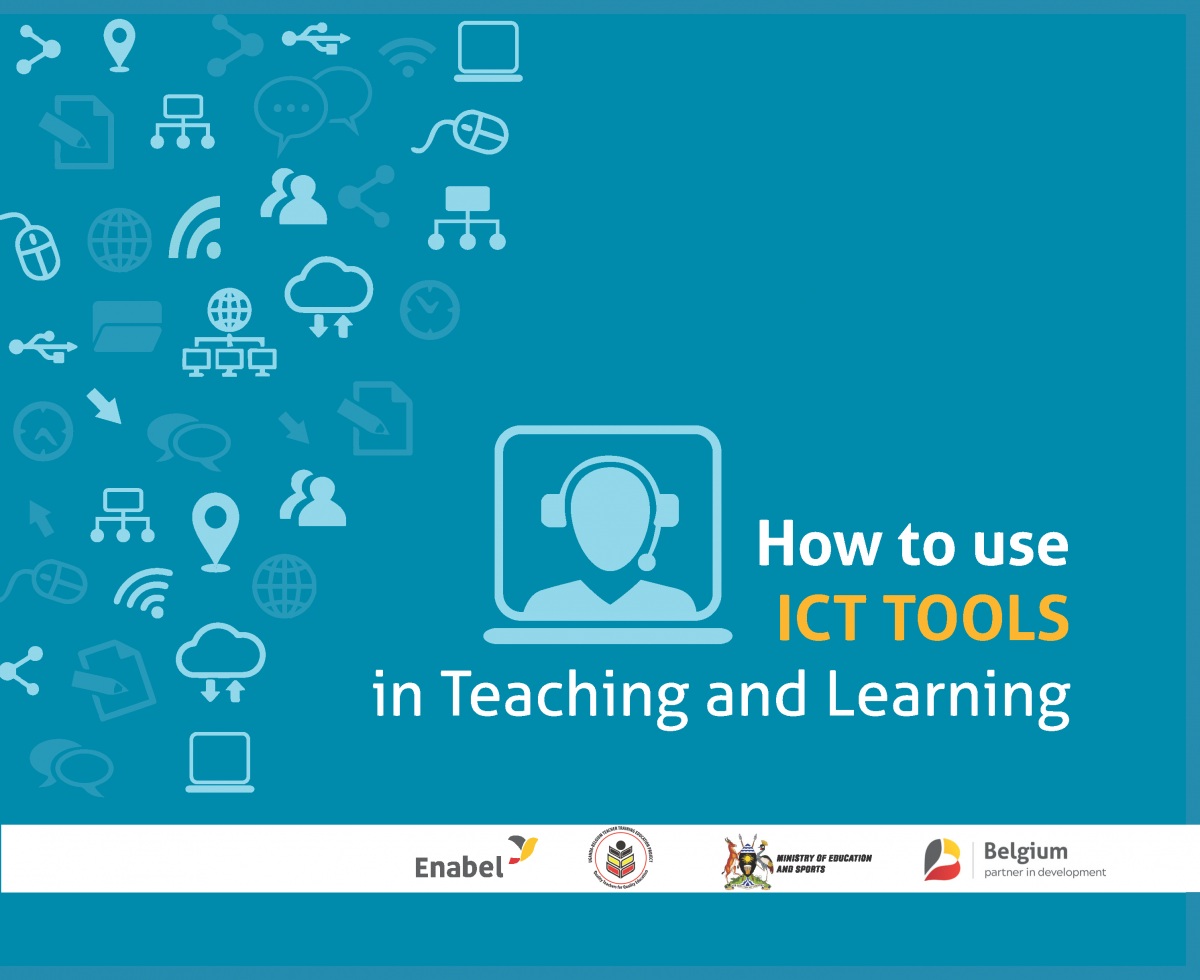
NTC lecturers redefining the teaching process in Uganda
Dorothy KYAMAZIMA | 12/11/2020
With the significant change to the way learning is presently operating, it is inevitable that teachers must re-skill at a record pace to support the continuity of learning.This means stepping away from traditional teaching methods and embracing the use of technology.A concept that Enabel has long since been supporting in the National Teachers’ Colleges (NTCs) in Uganda. Teachers in the NTCs are now responding to the education crisis by adapting to use ICT tools to deliver and develop lesson content, an idea made possible through a series of Community of Practise (CoP) sessions. These serve as collaborative virtual meetings through which lecturers learn how to use different digital tools for teaching and learning such as screen-casting, podcasting, video conferencing, E-books, and padlet among others. These sessions have gained popularity in the teacher colleges and now facilitate the blended learning approach within their education system with the benefits trickling as far as the partner secondary schools attached to the colleges.Ojok Simon Stephen, a teacher from Ocer Campion Jesuit College, a secondary school in Gulu had this to say. “I have attended four Community of Practice sessions and my favourite tool is PowerPoint because it doesn’t require constant use of the internet. I am able to work on my laptop and later share work with my students online. It is something am happy to use even when schools resume.” Click the link to access the booklet on how to use ICT tools in Teaching and Learning: https://drive.google.com/drive/folders/1BO6VHjnFwVTI8Vco5n6jOgUjwoerg-RR?usp=sharing
-
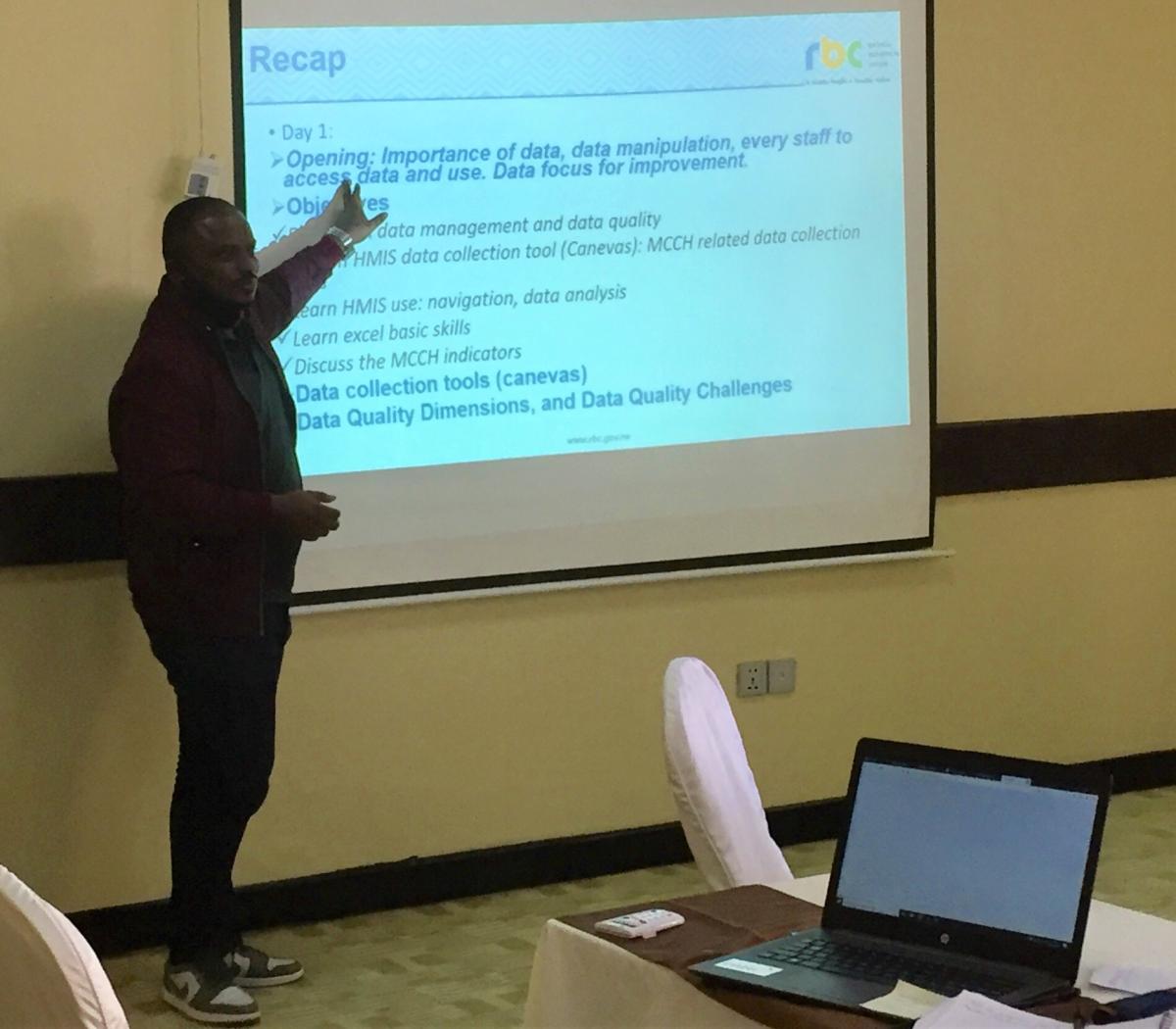
30 staff members trained on Health Management Information System in Rwanda
Denise NSANGA | 10/11/2020
From 3 to 6th November 2020, Maternal, Child and Community Health (MCCH) Division staff from Rwanda Biomedica Center (RBC) and Enabel’s Health project “Barame” staff have been trained on data analysis and use linked to the Rwanda's Health Management Information System (HMIS). Within the four day training, these Health staff improved their competences regarding HMIS data collection tool (Canevas) and data quality as well as MCCH indicators and data analysis tool. According to data quality assessment, there seemed to be a gap in terms of data quality, especially with regards to accuracy and reliability. Thanks to this workshop, better analysis and use of data can now be produced at central level for evidence-based decision-making; and feedback about the quality of the data collected at district operational (health facility and community) can be transmitted, hence improve the Rwandan health system.
-
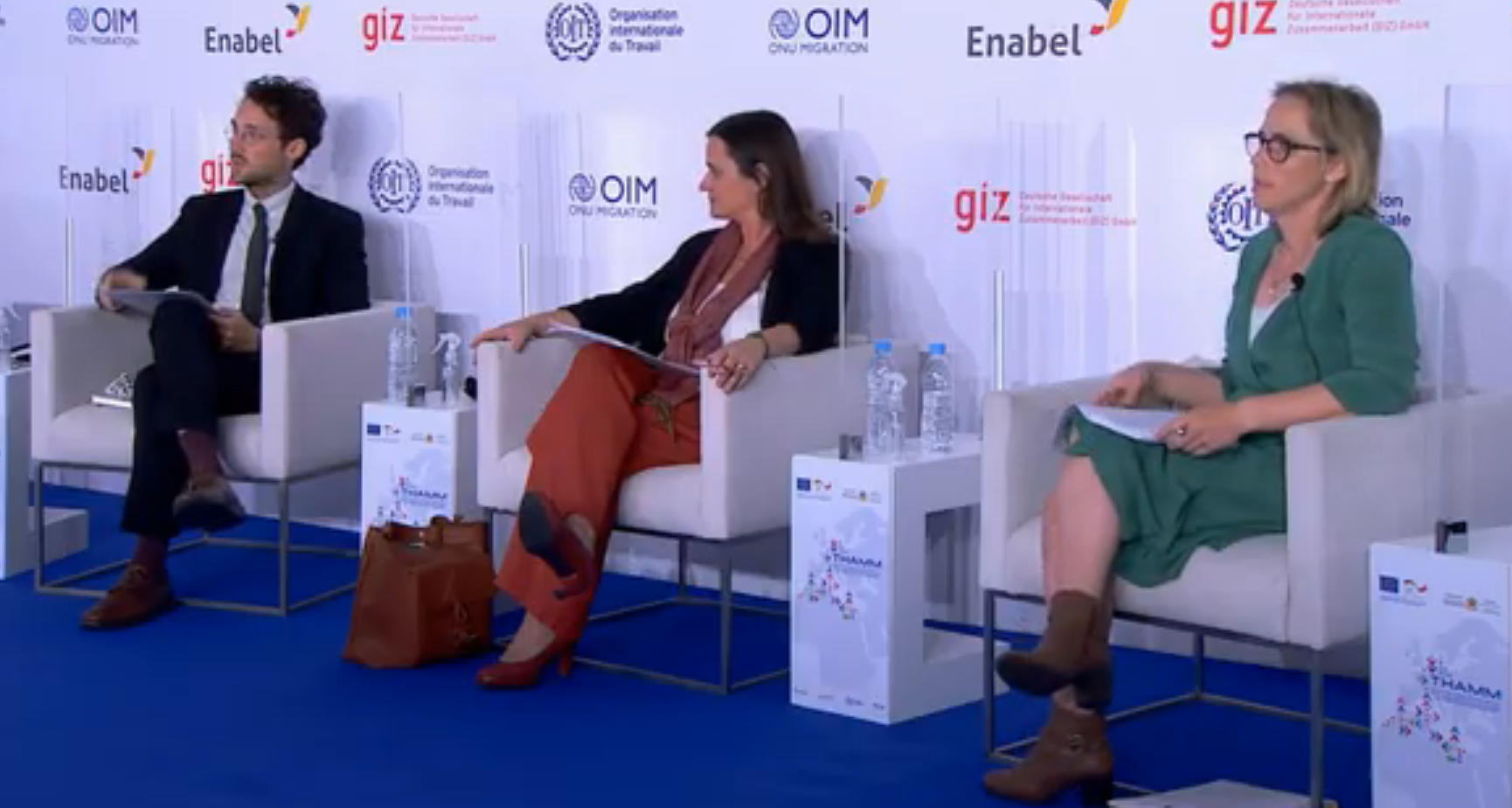
Au Maroc, lancement officiel du programme THAMM favorisant les possibilités de migration et de mobilité
Meriem HILALI | 10/11/2020
Le 14 octobre 2020 nous avons célébré le lancement officiel du programme THAMM à Rabat. Ce programme vise à favoriser pour les pays d’Afrique du Nord des possibilités de migration et de mobilité de la main-d’œuvre sûres, ordonnées et régulières, mutuellement bénéfiques à travers la mise en place de schémas de mobilité avec certains pays de l’Union européenne. Enabel est impatiente à l’idée de joindre ces programmes aussi importants après leurs démarrages début 2020 et de tester notre schéma de mobilité dans un cadre institutionnel opérationnel et géographique plus large, telle que la réglementation de l’accès au travail. Cette cérémonie de lancement officiel a été l’occasion d’offrir une visibilité nationale au programme et de renforcer les synergies entre les différents acteurs impliqués sur la thématique des migrations et de la mobilité de main d’œuvre depuis et vers le Maroc. THAMM est financé par Union européenne au Maroc et le Ministère Fédéral Allemand de la Coopération Économique et du Développement (BMZ). Ce programme est mis en œuvre par le Ministère du Travail et de l'insertion Professionnelle en partenariat avec les Agences d’exécution : l’Organisation internationale du Travail Bureau de l’OIT à Alger pour les pays du Maghreb, OIM, la Gesellschaft für Internationale Zusammenarbeit, GIZ et Enabel.
-

Lancement du #IDARATHON, compétition innovante pour de nouvelles méthodologies de travail- Maroc
Meriem HILALI | 10/11/2020
Retour sur le lancement de la 1ère édition d’#IDARATHON, une compétition innovante, qui ancre de nouvelles méthodologies de travail favorisant l’agilité, l’innovation et le travail collaboratif. La cérémonie avait pour objectif de présenter le Hackathon et de lancer officiellement sa 1ère édition, qui portera sur des projets innovants dans le domaine de l'administration numérique, notamment ceux liés à l’amélioration de l’accueil, à la performance collaborative et à la participation citoyenne dans le contexte actuel de Covid-19. Cette compétition est organisée dans le cadre du projet #eTAMKEEN, qui vise à renforcer les compétences des fonctionnaires au niveau central et local en matière de digitalisation.Une intervention mise en œuvre par Enabel et le Ministère de l’Economie, des Finances et de la Réforme de l'Administration, Département de la Réforme de l’Administration. IDARATHON se tiendra du 9 novembre au 9 décembre 2020. Les fonctionnaires participant.e.s seront encadré.e.s et accompagné.e.s par des experts en matière de transformation digitale et de créativité des équipes.Le but est de stimuler un secteur public dynamique, doté d’une nouvelle image qui valorise l'expérience usager et les nouvelles approches liées au développement de projets numériques. Une remise de prix aux meilleurs projets numériques est prévue fin décembre 2020.
-
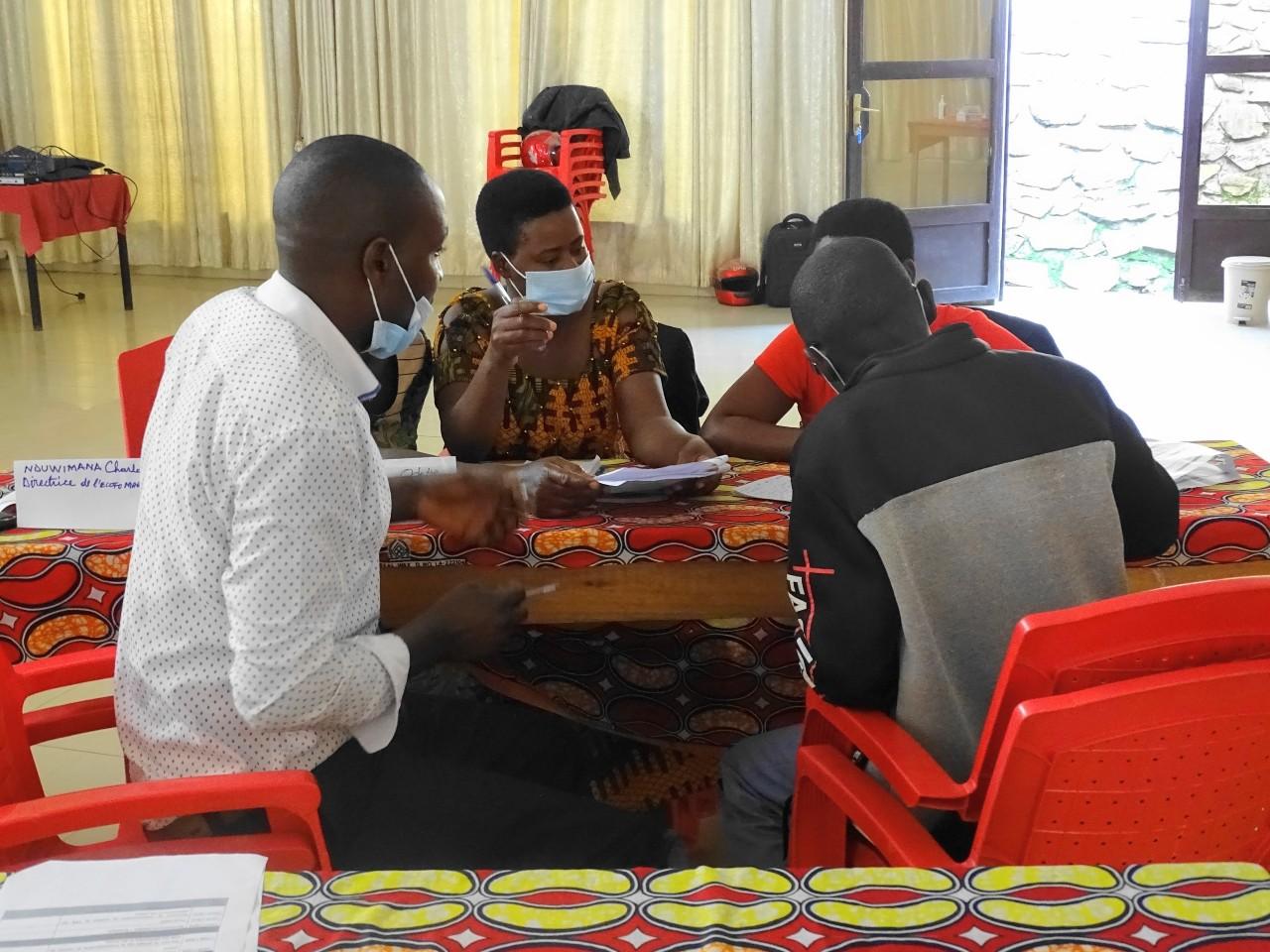
Formations en santé sexuelle et reproductive pour les adolescent.es, une réponse à l’enjeu démographique burundais ?
Carla MORVAN | 09/11/2020
Une bonne communication en matière de santé sexuelle et reproductive (SSR) permet de faire prendre conscience aux adolescent-e-s des risques importants qu'entrainent des rapports sexuels non protégés. Si les risques de transmission du VIH ou d’IST sont très importants, le problème des grossesses précoces est également central. La population du Burundi est actuellement évaluée à 12 millions d’habitant-e-s, avec un taux de croissance avoisinant les 3,3% en 2016 (référence). Le pays fait actuellement face à un défi démographique majeur. A cela se couple de faibles connaissances des adolescent.es et des jeunes en matière de Santé Sexuelle et Reproductive (SSR).Ces sont ces deux constats qui ont poussé le consortium Enabel, représenté par l’OMS à organiser, conjointement avec le Ministère de la Santé Publique et de la Lutte contre le Sida (MSPLS) des formations sur les meilleures techniques de communication en matière de SSR destinées aux adolescent.es et aux jeunes. Une première formation s’est tenue les 22 et 23 octobre 2020 pour les provinces de Muramvya et Kirundo réunissant respectivement 30 et 50 enseignant-e-s et animateur-rice-s de centres jeunes. L’objectif était d’enseigner aux participant-e-s les différents enjeux et questionnements auxquels les adolescent-e-s font face et leur fournir les bonnes techniques de communication à adopter afin d’instaurer un climat de confiance facilitant le dialogue et permettant une bonne intégration des discours. De nombreux thèmes ont été abordés, aussi bien concernant les défis démographiques auxquels le Burundi fait actuellement face que le développement psychosocial et affectif des adolescent-e-s en passant par leurs droits en matière de SRR, la gestion des menstruations ou encore les grossesses précoces et les avortements à risque.Une grossesse chez une adolescente est synonyme de risque de fistule obstétricale à l’accouchement pouvant mener à l’isolement social, à la dépression ou encore à l’aggravation de l’état de pauvreté.La probabilité d’un recours à un avortement à risque est également élevée, avec de fortes probabilités de séquelles physiques et psychologiques pouvant même conduire à la mort de la jeune femme enceinte. Un rappel des différentes techniques de contraception, naturelles et modernes a été effectué. Une autre préoccupation importante concernant la SSR des jeunes et qui doit faire l’objet d’une communication efficace est le risque d’abandon scolaire lié à l’apparition des menstruations chez les jeunes filles.Lors de la formation, les formateur-rice-s ont insisté sur l’importance de rappeler l’enjeu d’une éducation de qualité aux jeunes filles et ont énoncé quelques conseils à suivre afin de faciliter la venue à l’école de celles-ci lors de cette période du mois (mise en place de poubelles adaptées dans les sanitaires, hygiène dans les sanitaires, etc.). L’éducation est un enjeu central du défi démographique auquel le Burundi fait actuellement face et il est primordial de mettre tout en œuvre afin que les adolescent-e-s ne soient pas discriminées dans l’accès à l’éducation. Enfin, les différentes formes de violences sexuelles basées sur le genre (VSBG) touchent de près les adolescents et il est important que les enseignant-e-s et animateur-rice-s des centres jeunes connaissent les procédures en cas de VSBG soupçonnée ou avérée et puissent communiquer de manière à soutenir la victime au mieux et lui offrir un certain nombre de services (prise en charge médicale, psychosociale, juridique et communautaire).
-

Transforming Information into shareable Knowledge - Uganda
Dorothy KYAMAZIMA | 04/11/2020
At Enabel, we believe that information has the power to transform societies by promoting sustainable development initiatives. The information we derive from our project implementation serves to improve our work but can further strengthen works of our partners when adopted on a larger scale. Therefore, through experience capitalization, we have documented the key good practices in our efforts to train secondary school teachers in Uganda for the 21st century. We hope this content will reach others in similar sectors and inspire communities to change by acting as a guide to adopting, adapting and scaling up these practices.Enabel and the Ministry of Education and Sports in Uganda implement the Teacher Training Education (TTE) project in five National Teachers’ Colleges of Muni, Mubende, Kaliro, Kabale and Unyama.The project is mainly focused on 3 key areas: · Institutional Development: to strengthen the management systems in the colleges and the Ministry of Education and Sports central departments, i.e. Teacher/Instructor, Education and Training Department (TIET).· Infrastructure: to rehabilitate, expand and equip the college facilities. · Pedagogy: to improve the quality of teaching and learning in the colleges and partner secondary schools. Click on the link to access the Capitalization document: https://issuu.com/tteugandaenabel/docs/29092020_finalcapdoc
-
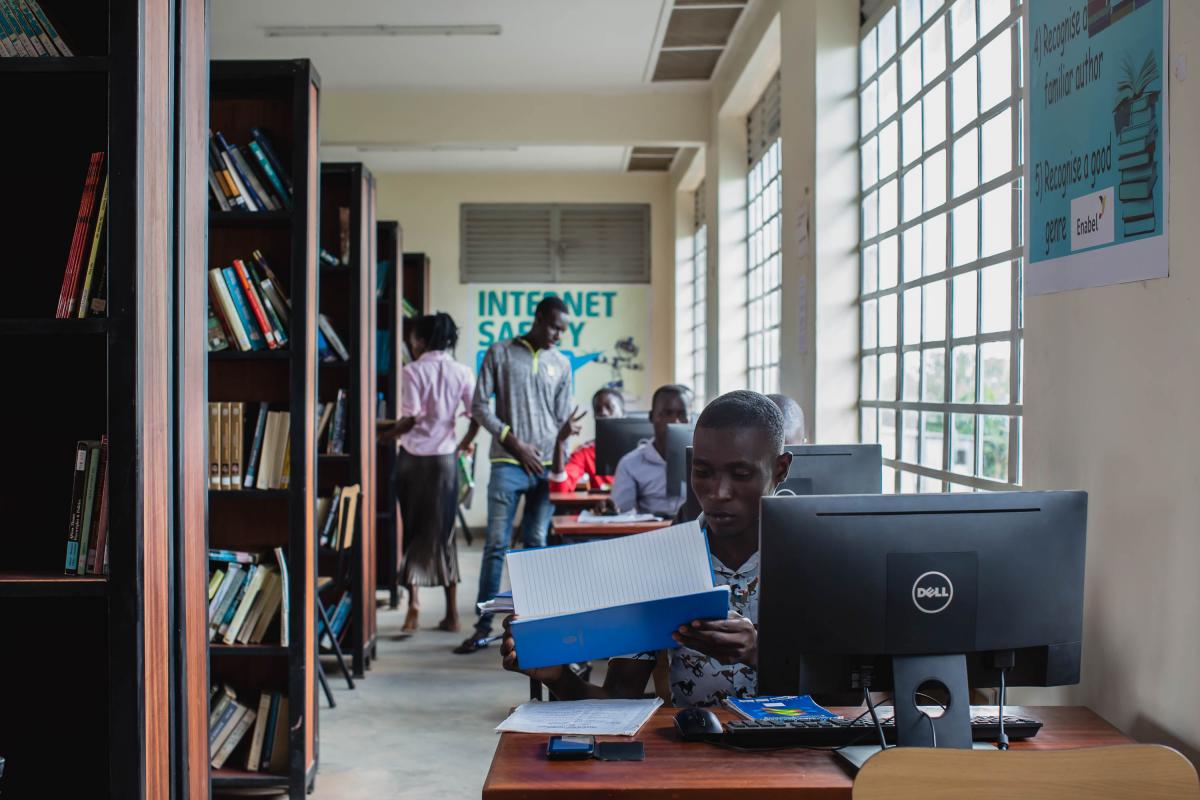
In Uganda, MTN, a telecommunicatins provider and Enabel partner to promote distance learning
William YEKA | 03/11/2020
Teacher trainees will no longer incur data charges in order to access educational content. Uganda’s leading telecommunications provider MTN has zero-rated the one-stop online learning portal for aspiring teachers. Zero-rating is the practice of not charging customers for data use on specific websites and services by internet service providers and mobile service providers. Learners subscribed to the MTN network will be able to access the learning portal free of charge. The platform was developed by Enabel and the Ministry of Education as part of the distance learning strategy called the “Teacher Training Education sandbox”. This was in response to the learning disruption caused by COVID-19. The pandemic led to closure of schools in March although government reopened them mid last month for candidate and final year students. The distance learning strategy is meant to ensure learning continuity in Uganda’s 5 national teacher’s colleges. Although digital course content covering the entire teacher training curriculum was successfully developed with support from teachers and uploaded on the one-stop portal, access was hampered by high internet costs. According to the telecoms regulator Uganda Communications Commission, the East African nation has the highest internet cost in the region. This coupled with high poverty levels hinders internet access which moreover is needed to facilitate distance learning especially during this period of schools closure due to the coronavirus disease. Uganda’s 2019 communications report indicates that the country’s internet penetration now stands at 37.9%. MTN Foundation’s Senior Manager, Bryan Mbasa says the availability of digital education content has been a major challenge in Uganda. The portal, he noted will partly solve the problem. “It is a great pleasure for us to zero-rate access to this platform. As long as you have an MTN connection, you will have zero-rated access,” Mbasa says. The one-stop online learning portal will benefit 265 teacher trainers, 5000 student teachers and 16 partner secondary schools. This is the second time Enabel is partnering with arguably Uganda's biggest private sector company. In 2019, the two entities collaborated to set up ICT laboratories in 3 vocational training institutes namely; St. Daniel Comboni Polytechnic NAOI (Moroto), St Simon Peter’s Vocational Training Centre (Hoima) and Amelo Technical Institute (Adjumani). MTN provided computers, servers and internet connection. Close to 10years now, Enabel with support from the Kingdom of Belgium has been supporting Uganda to improve the quality of teacher education through infrastructural development, better management practices and improved pedagogy including integration of ICT in teaching and learning.
-
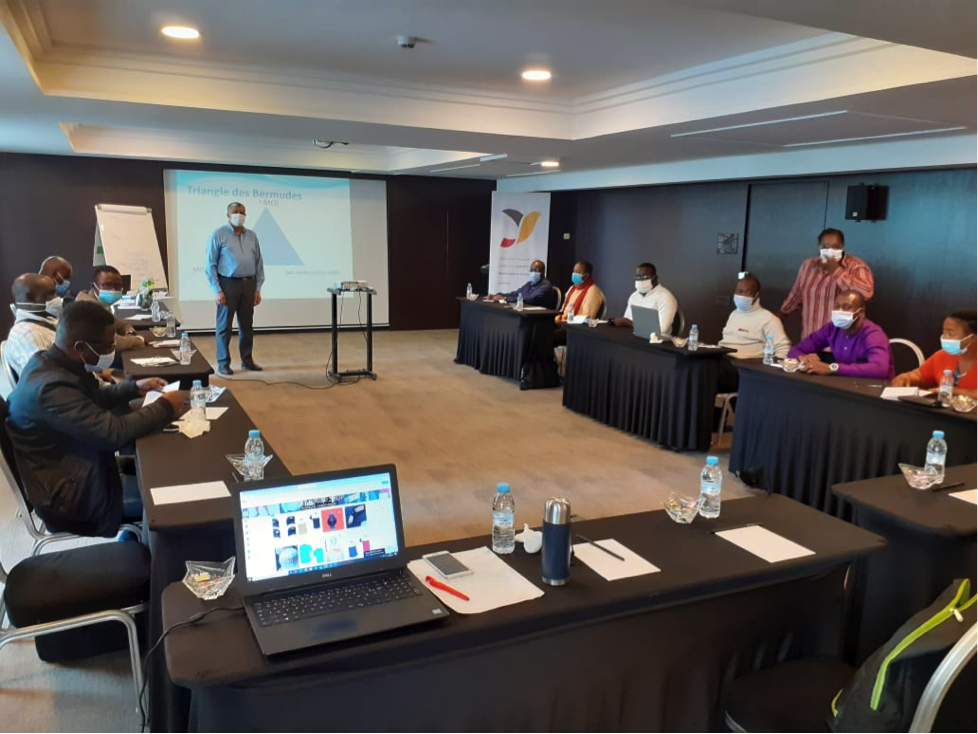
Au Maroc, le projet Amuddu organise un cycle de formation au profit des leaders communautaires
Clara HUYGHE | 02/11/2020
Premier cycle de formation de 50 leaders communautaires organisé dans le cadre des activités du projet Amuddu. Ces formations tenues en octobre et novembre, à Casablanca et Rabat, ont pour objectif premier de renforcer les relations avec les communautés de migrant·es dont ils sont issus, et d’améliorer à terme leur employabilité. Tout en gardant comme objectif final l’une des priorités de la Stratégie Nationale d’Immigration et d’Asile, à savoir l’insertion économique des personnes migrantes, le projet Amuddu de concert avec l’Agence nationale de promotion de l'emploi et des compétences –ANAPEC— s’attèle à l’implémentation d’un dispositif basé sur la mobilisation communautaire des migrant·es. En effet, le renforcement de capacités et la mobilisation des leaders communautaires permettraient aux migrant·es d’être plus facilement sensibilisé·es sur l’offre de service de l’ANAPEC et de bénéficier des processus d’accompagnement ainsi que des mesures vers l’emploi et l’auto-emploi prévues dans le cadre du projet Amuddu. En considérant le rôle des leaders communautaires comme des personnes relais et des influenceurs auprès des communautés installées sur le territoire d’intervention du projet (Rabat-Salé-Kénitra et Casablanca-Settat), plusieurs formations pertinentes ont été conçues et adaptées à ces cibles. Lors de ces cycles de formation, les thématiques suivantes sont abordées :Développement personnel et leadershipCommunication activeGestion de conflitApproche genre et gestion de cas de violence basé sur le genre De plus, des fiches professionnelles, un plan d’action pour formation complémentaire ainsi qu’un guide pédagogique seront conçus à la fin du cycle. Le renforcement de capacité des leaders communautaires s’inscrit dans le cadre d’une approche inclusive permettant de mieux diffuser l’information sur les formations professionnelles et les services d’accompagnement à l’emploi et à l’auto-emploi vers les populations migrantes installées sur les deux régions d’intervention.
-
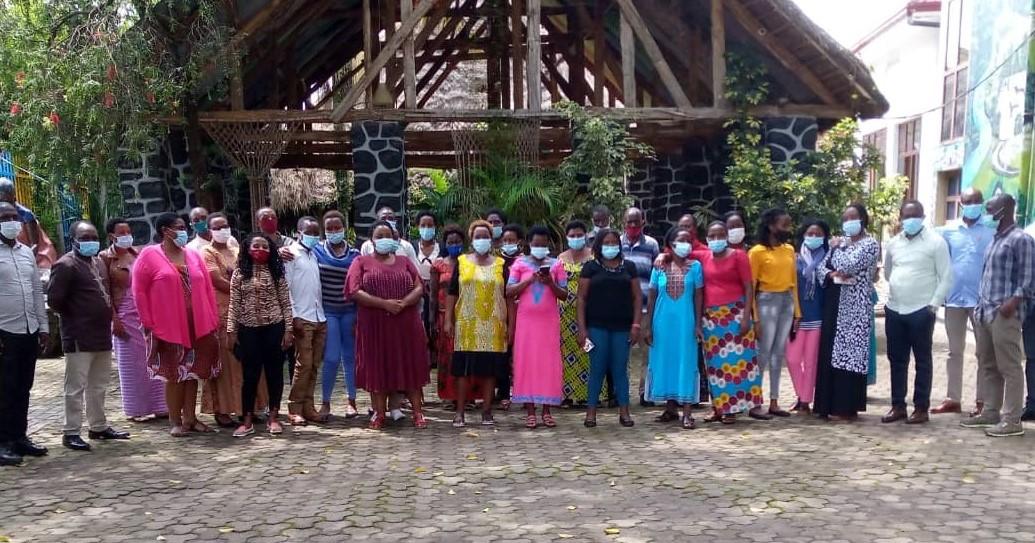
GBV service providers to improve quality service at health centre level - Rwanda
Denise NSANGA | 30/10/2020
A 5-day training of 33 Gender Based Violence service providers was concluded on 30th October 2020 in Karongi District, Western Province. With Enabel’s technical and financial assistance, via Barame Health project, in partnership with Rwanda Biomedical Centre (RBC), staff from 22 Health centers participated in this training, including 28 nurses and 5 community and environment health officers. Trainees acquired more insights in GBV case screening and management while improving on referral system to timely provide comprehensive and adequate services to GBV victims.The training was organised with regards to reinforce the functioning of GBV services at health center level, a strategy to improve on service accessibility at decentralized level.
-

Launch of an agriculture programme to increase farmers’ revenues and jobs creation in Rwanda
Denise NSANGA | 29/10/2020
Kigali, 29 October 2020 – On the occasion of the celebration of the International World Food Day, Enabel’s Agriculture intervention (PRISM) in Rwanda was launched by Rwanda’s Minister of Agriculture and Animal Resources (MINAGRI). Agriculture is one of the priority sectors of the Belgo-Rwandan portfolio 2019-2020, with a Belgian financial contribution of 30 million Euros . The programme aspires to contribute to jobs creation, private sector development and food security and is aligned with the Rwandan Strategic Plan for the Transformation of Agriculture phase 4 (PSTA-4), 2018-2024, which envisages a transformation of agriculture from a subsistence sector to a knowledge-based value creating sector that contributes to the national economy and ensures food and nutrition security. This Agriculture programme works around 2 general objectives: the revenue of farmers increases through quality proximity extension services, improved access to inputs and through the introduction of new technologies while the Private Sector creates more added value through more efficient markets, improved storage transformation and agro-processing. Speaking at the event, Jean-Michel Swalens, Head of the Belgian Development Cooperation and Deputy Head of Mission at the Embassy of Belgium in Rwanda said, ‘if we put our efforts together, we shall end hunger, food insecurity and all forms of malnutrition by 2030. This is one of the priorities of the Belgo-Rwandan Cooperation 2019-2024.’ PRISM will develop inclusive and sustainable Feed, Pig and Poultry Value Chains in which all actors run a profitable business, as well as attracting private investment to develop a modern industrialized value chain to produce high quality meat products and eggs to substitute import as well as to export.
-

La réponse d'Enabel au Covid-19 au Burkina Faso
Kader TAPSOBA | 28/10/2020
Face à la pandémie de Covid-19, Enabel a élaboré avec ses partenaires au Burkina Faso, un plan de réponse de trois mois pour soutenir le gouvernement dans la lutte contre l'épidémie.Ce plan a été mis en œuvre à travers entre autres les différentes interventions du portefeuille Centre-Est. La réponse d'Enabel a consisté à limiter la propagation de l’épidémie au niveau national et à renforcer les dispositifs de prévention dans la région du Centre-Est. Découvrez -en plus à travers cette vidéo.
-

Launch of a distance learning strategy in times of Covid-19 in Uganda
Dorothy KYAMAZIMA | 27/10/2020
Given the global pandemic and its impact on the education system around the world, many actors have been quick to respond to the education crisis. In Uganda, Enabel has worked together with the Ministry of Education and Sports to develop and implement a distance learning strategy dubbed the “TTE Sandbox” to ensure the continuity of learning in the National Teachers' Colleges.Read more about the Sandbox project: https://www.enabel.be/story/even-times-covid-19-learning-shouldnt-wait
-

Lancement officiel du projet DEPOMI - Maroc
Meriem HILALI | 27/10/2020
Lancement officiel du projet « Déploiement des politiques migratoires au niveau régional (DEPOMI), le vendredi 23 octobre 2020 au siège de la Wilaya de l’Oriental à Oujda.Ce projet, financé par le Fonds Fiduciaire d’Urgence (FFU) de l’Union européenne, va permettre au Ministère Délégué chargé des Marocains Résidant à l’Etranger d’accompagner les régions partenaires des projets SoussMassa, BeniMellalKhénifra et Oriental d’intégrer la dimension de la migration dans les politiques et stratégies publiques aux niveaux national et régional. Le processus de régionalisation avancée est une opportunité pour mettre les régions au cœur de l’implémentation de la Stratégie Nationale d’Immigration et d’Asile et de la Stratégie Nationale au profit des Marocains Résidant à l’Etranger dans les régions partenaires du projet.La mise en œuvre du projet est confiée à Enabelen coordination avec tous les acteurs concernés par la thématique. A terme, le projet DEPOMI prévoit d’atteindre les résultats relatifs au renforcement des compétences des acteurs partenaires, de la gouvernance et la planification stratégique de la migration.Une feuille de route sur l'institutionnalisation de la dimension migratoire sera élaborée par région pour instaurer un mécanisme de concertation et de coordination des acteurs qui s’appuie sur l’intégration systématique de la migration dans les documents de planification stratégique régionale et locale. Par ailleurs, le projet prévoit également un partenariat avec les organisations de la société civile pour l’atteinte de certains résultats intermédiaires dans les trois régions cibles ainsi que la recherche-action grâce à une collaboration entre les universités marocaines et européennes. L’objectif de cette dernière est de créer de la connaissance, d’approfondir certains axes et de mettre à la disposition des régions toutes les données nécessaires pour mieux intégrer la migration dans son développement.
-

Ugandan teachers say what they think of the TTE Sandbox Strategy
Dorothy KYAMAZIMA | 27/10/2020
The Sandbox Strategy is transforming the teaching and learning process within the National Teachers' Colleges allowing them to adjust to digital technology but also ensure the continuity of learning. Here is in video what some teachers had to say about this strategy.Read more about the Sandbox project: https://www.enabel.be/story/even-times-covid-19-learning-shouldnt-wait
-

Au Mali, formation des femmes de Koulikoro en techniques de fabrication du fromage
Nènè TRAORE | 26/10/2020
Au Mali, la surproduction de lait en saison hivernale et durant la période de récolte entraînent des pertes financières pour les producteurs de lait. Afin d’éviter ces pertes, la valorisation du lait et sa transformation en fromage constituent un enjeu important pour la conservation des produits laitiers et leurs écoulements sur le marché.Malheureusement les techniques endogènes de fabrication de fromage ne sont pas maîtrisées par les femmes du cercle de Dioila malgré sa valeur marchande sur le marché et sa valeur nutritive pour les ménages agropastoraux. Enabel a initié une formation destinée à une dizaine de femmes membres de la fédération lait de Fana en techniques de fabrication de fromages sahéliens.L’objectif de cette formation étant de renforcer les capacités individuelles des membres de la fédération lait de la région de Koulikoro en matière de valorisation du lait.Cette action s’inscrit dans le cadre de la mise en œuvre du projet de renforcement des capacités qui accompagne la Fédération régionale lait de Koulikoro sur le développement de la filière lait. Grâce aux acquis de cette formation les femmes de la fédération de lait auront les capacités nécessaires pour former à leur tour les femmes des ménages pastoraux et agropastoraux, qui sont traditionnellement les vraies propriétaires de lait.Cela permettra ainsi de diversifier les sous – produits laitiers qu’elles pourront commercialiser sur le marché.
